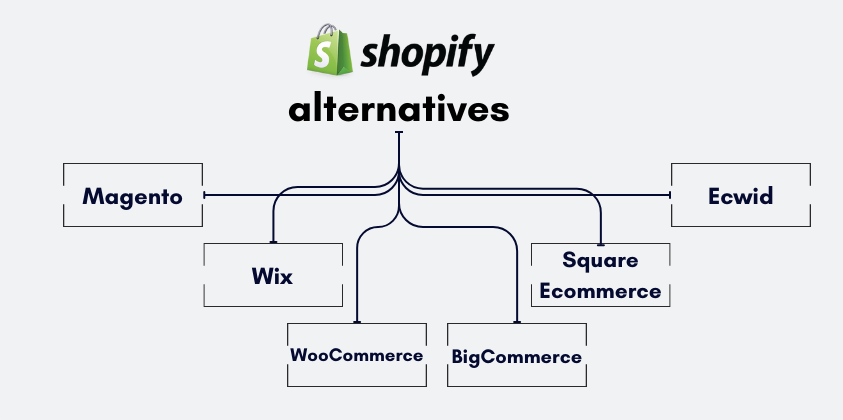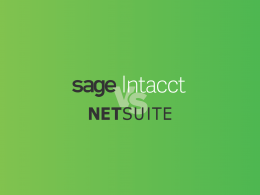Shopify has become a popular platform choice for many online businesses thanks to its user-friendly interface, extensive features, and support. However, it’s important to remember that it may not be the perfect fit for everyone.
If you’re looking for Shopify alternatives, this article can help you explore other ecommerce platforms and make an informed decision that best meets your specific requirements.
Shopify: the go-to choice
Shopify is an ecommerce platform that simplifies the creation and management of online stores. It offers user-friendly website templates for customization, easy product and inventory management, secure payment processing, streamlined order fulfillment for every industry. The platform also provides digital marketing and SEO tools, integration with third-party apps, and handles hosting and technical aspects. Shopify is accessible to businesses of all sizes, making it a powerful tool for entrepreneurs and established brands.
Simply put, Shopify allows you to build your store and manage many aspects of your business in one place.
I want us to make a quick stop at some of the most beneficial Shopify features to get an idea of why it’s so popular. But then, we’ll also touch upon limitations some businesses might want to consider.
If you are interested to learn more about how Shopify works, feel free to read our article “How to Start a Shopify Store And Run It Successfully“
Shopify’s benefits for small businesses
As mentioned above, Shopify stands out for its features tailored to online retail. Let’s go get a closer look at those.
User-friendly interface
Shopify offers a user-friendly interface with an intuitive drag-and-drop functionality that simplifies the setup process. At this point, it suits individuals with various levels of technical expertise. It means that even those new to ecommerce can create product listings, customize their online store’s appearance, and manage content. For smaller businesses or those that start, it makes life ways easier.
All-in-One solution
Shopify is an all-in-one ecommerce solution. It means it provides the necessary tools to manage every aspect of an online store. From initial setup to intricate tasks like inventory management and order processing – you can handle everything within Shopify’s ecosystem. It’s convenient. You have all your data in one place, so you can access it whenever you want to analyze it and fetch business-critical insights. Besides, you don’t have to deal with many different tools and systems, trying to make them work together.
Extensive App Store
Shopify’s extensive app store offers various additional functionalities. For example, SEO tools are instrumental in boosting the visibility of online stores on search engines like Google. It helps attract more potential customers and increase online presence. Beyond SEO, the app store provides other features and functionalities, enabling you to tailor your store to meet your business objectives.
Payment integration with Shopify Payments
Shopify’s native payment processing system, Shopify Payments, is a pivotal feature for ecommerce businesses. This built-in payment solution simplifies transactions for both store owners and customers. With Shopify Payments, you can securely process payments directly on your website, offering a seamless and trustworthy buying experience. It reduces the friction in the checkout process and can lead to higher conversion rates, as customers appreciate the convenience and security of the integrated system.
In addition, Shopify supports various third-party payment gateways. This flexibility allows businesses to accommodate customer preferences. This way, you can provide a smooth and secure payment experience and improve customer satisfaction.
Shopify’s limitations for small businesses
As you can see, Shopify offers plenty of advantages for small businesses venturing into the world of ecommerce. However, like any platform, it has its limitations. While some might find them inessential, others might consider them a constraint. So, they might want to search for an alternative to Shopify.
Pricing structure
One of the most prominent limitations of Shopify, especially for small businesses, is its pricing structure. While Shopify provides a range of plans, each with different features and capabilities, the costs can be prohibitive for those operating on a tight budget.
Shopify’s pricing begins with the Basic Shopify plan, which is relatively affordable but lacks more advanced features and tools only available in the more expensive options. For example, if someone needs detailed reporting or abandoned cart recovery, they should subscribe to the higher-tier plans. It can significantly increase monthly expenses, which might be challenging for businesses with limited financial resources.
Transaction fees
Another limitation that small businesses should be mindful of is the additional transaction fees that Shopify charges when you use external payment gateways. So, if you prefer not to use their in-house payment gateway (Shopify Payments) and go with an external payment provider, Shopify might charge you extra on every transaction. These fees might seem small individually but can quickly accumulate, especially for businesses with high sales volumes.
For businesses with thin profit margins, these transaction fees can cut into their earnings and potentially make Shopify a less cost-effective choice compared to other platforms that don’t impose these additional charges.
Customization restrictions
Shopify is known for its user-friendly approach, but this simplicity can sometimes become a limitation. Here, it affects design and customization. The platform offers a variety of pre-designed themes that you can customize to some extent. However, there are limitations to how far you can go in creating a truly unique online store.
Businesses that rely heavily on a distinct and highly customized online presence to showcase their brand identity can find these limitations frustrating. Pre-designed themes, while visually appealing, may not always align perfectly with the brand image that a business wants to convey. For companies that need their online store to be more than just a template-based representation of their brand, it can be a significant drawback.
Exploring Shopify alternatives
As you can see, businesses can look for Shopify alternatives for many reasons. We gathered several ecommerce platforms that you, as a business owner, might want to consider. Quite obviously, they have their advantages and drawbacks, but any can become a perfect fit for some businesses if they address their needs and help build and run their ecommerce store.

Magento: an open-source Shopify alternative for an ecommerce business
Among all the Shopify alternatives available on the market they often call Magento the open-source powerhouse of ecommerce platforms. It earned this reputation thanks to its versatility, scalability, and robust feature set. Magento offers a level of customization that few other platforms can match, making it an ideal choice for businesses that demand a unique and personalized online store.
The most prominent Magento features
- Unparalleled customization
Magento allows businesses to have complete control over the look and functionality of their online store. You can design your store to precisely match your brand identity, ensuring a unique online presence. - Scalability
Magento is highly scalable, making it suitable for businesses of all sizes. Whether you’re just starting or managing a large ecommerce operation – Magento can grow with your business. - Extensive plugin library
Magento boasts a vast library of plugins and extensions, allowing you to add features and functionality to your online store. From inventory management to SEO optimization, you’ll find a plugin for nearly every need.
Potential drawbacks
- Technical expertise required
While Magento’s flexibility is one of its greatest strengths, it can also be a challenge. Setting up and maintaining a Magento-based store might require higher technical expertise. It can be a barrier for those new to ecommerce and web development. - Cost considerations
While a free version of Magento is available, costs can quickly add up, especially when advanced features and hosting requirements come into play. Businesses should budget for development, maintenance, and hosting expenses to ensure a smooth operation.
Pricing options
Magento offers a free and open-source Community Edition, a popular choice for small businesses with basic requirements. However, if you need more advanced features and support, you might want to consider the Enterprise Edition, which has a higher price tag. Additionally, hosting costs are a significant part of the equation, varying depending on the scale and complexity of your online store.
As you can see, Magento shines as a highly customizable and feature-rich ecommerce platform, making it a formidable Shopify alternative for businesses looking to craft a truly unique online store. However, one should weigh its technical demands and potential costs against the specific needs and resources of the ecommerce venture.
Wix: a user-friendly ecommerce platform for a small business
Wix website builder offers a compelling Shopify alternative for small businesses aiming to establish an online store. With its user-friendly approach, Wix enables individuals and entrepreneurs to create an online store without requiring extensive coding knowledge. At this point, it can be an accessible choice, particularly for those with limited technical resources.
However, Wix’s ecommerce capabilities may not match the robustness of some alternative platforms, and it might not be the best fit for larger businesses or those with complex product catalogs.
The most prominent Wix features
- Drag-and-drop interface
Wix’s intuitive drag-and-drop interface simplifies the website and online store creation process, allowing users to customize the look and feel of their store effortlessly. - Templates and design
Wix provides a wide array of visually appealing templates that cater to various business types, allowing small businesses to create a professional and attractive online presence. - Ease of use
Small business owners and entrepreneurs appreciate Wix for its ease of use. You can add products, set up payment options, and manage your inventory with minimal hassle. - App market
Wix offers an App Market where users can integrate various third-party apps to enhance their online store’s functionality, including marketing, SEO, and customer support tools.
Potential drawbacks
- Limited ecommerce features
While Wix’s ecommerce capabilities are functional, they might not be as comprehensive as some other Shopify alternatives provide. Businesses with complex product offerings or advanced requirements may find Wix somewhat restrictive. - Scaling limitations
Wix’s scalability might be a concern for businesses with ambitious growth plans. It is more suitable for small businesses rather than enterprises. - Template limitations
While the templates are visually appealing, they might be somewhat restrictive in customization. Businesses that require highly unique designs might encounter limitations.
Pricing options
Wix provides a free plan, allowing users to create a basic website or online store with essential features. However, it does not include much of ecommerce functionality.
For full ecommerce capabilities, users need to subscribe to one of Wix’s paid plans. These plans come with a monthly fee and offer various features, including online store functionality, a custom domain name, and marketing tools. Prices vary depending on the plan, making it accessible to businesses with different budget constraints.
Wix also offers a free trial period for its paid plans, allowing users to explore the platform’s premium features to understand whether they fit their business needs before committing to a subscription.
As you can see, Wix can be a good fit for small ecommerce businesses that don’t need a vast product catalog and don’t involve many sales. Probably, starting a business, one might find Wix a viable option. However, as business grows, they might want to consider a different platform.
WooCommerce: the WordPress ecommerce plugin for an online business
WooCommerce, a popular ecommerce solution, offers a unique advantage for businesses that already operate WordPress websites (which is also a frequent case). As a free plugin, WooCommerce seamlessly integrates with your existing site, transforming it into a fully functional online store. Its compatibility with WordPress provides a valuable bridge for businesses looking to expand into ecommerce without starting from scratch.
However, it’s essential to understand that WooCommerce may not be the best choice for those who don’t already use WordPress, and it might require a slightly steeper learning curve due to its technical demands.
Most prominent WooCommerce features
- Seamless integration
WooCommerce works harmoniously with your WordPress website, enabling you to add ecommerce functionalities to your existing online presence. - Customization
Businesses can tailor their online store to their exact specifications with a high level of customization. WooCommerce offers a range of themes and design options, allowing you to create a unique and brand-specific storefront. - Wide range of plugins
WooCommerce boasts an extensive library of plugins that can enhance your ecommerce capabilities. These plugins cover everything from payment gateways to marketing tools and can be instrumental in improving your online business’s performance. - Content management
Since WooCommerce is part of the WordPress family, it inherits WordPress’s renowned content management system (CMS). It makes managing your products, site’s content, and blog posts a brief. - Hosting partnership
WooCommerce has a strategic partnership with SiteGround, a reputable web hosting provider. This partnership means that SiteGround offers specialized hosting solutions optimized for WooCommerce, ensuring seamless compatibility and superior performance for WooCommerce-powered online stores.
Potential Drawbacks
- WordPress dependency
The primary drawback of WooCommerce is its dependence on WordPress. If your business doesn’t already use this content management system, adopting it solely for ecommerce might not be the most efficient solution. You’d need to invest time and resources in learning and maintaining WordPress first and then go with WooCommerce. - Technical expertise
WooCommerce robust customization options can be a double-edged sword. Achieving highly customized designs or features might require more technical expertise or hiring web developers, which can add to the operational costs of your online store. - Plugin compatibility
Although the wide range of plugins is a strength, compatibility issues can arise, potentially leading to glitches or conflicts to resolve.
Pricing options
WooCommerce is known for its affordability, especially given its open-source nature. It’s a free plugin, meaning you can install and use it on your WordPress website without any initial costs. However, you may face additional expenses when customizing your store or purchasing premium themes and extensions.
Depending on your choice of payment gateway, there may be associated fees. These fees are not part of WooCommerce’s pricing but are essential when setting up your online store.
Besides, you’ll need a hosting service for your WordPress site, which could vary in price depending on your hosting provider and your website’s specific needs.
So, WooCommerce can be a powerful solution that integrates with your existing WordPress website, making it a compelling choice for businesses already familiar with the platform. Its high level of customization and extensive plugin library offers numerous advantages. However, it may not be the best option for businesses without WordPress experience, and customization can require technical expertise.
BigCommerce: feature-rich ecommerce platform
BigCommerce is a versatile and feature-rich solution suitable for businesses of all sizes. Offering a wide array of features and extensive customization options, it looks like a compelling alternative to Shopify. One of its standout features is a strong focus on SEO capabilities, equipping businesses with the tools to improve their online store’s visibility and search engine rankings. However, it’s crucial to consider factors such as pricing and UI when assessing BigCommerce as a Shopify alternative.
Most prominent BigCommerce features
BigCommerce excels in several areas, making it an attractive choice for businesses looking to establish a strong online presence.
- SEO Tools
BigCommerce provides a range of built-in SEO features, including customizable URLs, automatic sitemaps, and metadata control. These tools are essential for improving a website’s search engine visibility, a critical aspect of driving organic traffic and attracting potential customers. - Customization
The platform offers extensive customization options, allowing businesses to tailor their online stores to match their unique branding and requirements. This versatility ensures that your store doesn’t look or feel like a template-based design, enhancing brand identity. - Scalability
BigCommerce is equipped to support businesses of varying sizes, from startups to established enterprises. As your business grows, the platform can scale alongside, accommodating increased traffic and sales without the need for a complete overhaul. - Multichannel selling
BigCommerce facilitates selling on multiple channels, including marketplaces like Amazon and eBay, enabling businesses to reach a broader audience. This feature streamlines inventory management and order processing across various sales channels.
Potential drawbacks
While BigCommerce offers substantial advantages, there are some potential drawbacks to consider.
- Pricing
BigCommerce’s pricing, while competitive, can be on the higher side for smaller businesses on tight budgets. The cost might outweigh the benefits for those who don’t require the full suite of features included in the more expensive plans. - Learning curve
The UI in BigCommerce may not be as intuitive for beginners as Shopify’s. Getting acquainted with the platform may require some time and effort, which could be a challenge for those new to ecommerce.
Pricing Options
BigCommerce offers a range of pricing plans to cater to diverse business needs. While there’s no free option, they do provide a 15-day free trial, allowing businesses to explore the platform’s capabilities. After the trial period, pricing starts at around $30 per month (as of today; the numbers can change as the provider’s pricing policy changes).
Each higher pricing tier comes with additional features. The Plus Plan includes abandoned cart recovery and customer groups. Designed for larger businesses, the Pro Plan offers advanced features, including Google customer reviews and improved analytics. There’s also the Enterprise Plan, tailored to the needs of high-volume businesses. It comes with customized solutions and pricing.
At this point, BigCommerce can be a powerful Shopify alternative, especially for businesses seeking feature-rich ecommerce solutions and advanced SEO capabilities. While the pricing may not be suitable for all budgets, its robust customization options and scalability make it an attractive choice for businesses looking to expand and thrive in the online marketplace.
Square Ecommerce: a holistic ecommerce alternative to Shopify
Square Ecommerce – formerly Weebly – is an all-in-one solution designed with small businesses in mind. This platform uniquely combines website building and ecommerce functionalities, offering a seamless, integrated approach to online store management. Its focus on user-friendliness makes it an excellent choice for those who seek a straightforward and hassle-free way to set up and operate their online store.
Prominent Square Ecommerce features
Square Ecommerce prides itself on user-friendliness, making it particularly attractive to small businesses and entrepreneurs with minimal technical expertise. Here are some of its prominent features.
- Integrated website building
The platform provides a user-friendly website builder, allowing users to create a professional-looking online store. No coding skills are required, making it accessible to many users. - Ecommerce functionality
Square Ecommerce seamlessly integrates ecommerce features, allowing businesses to add products, manage inventory, and process orders within the same platform. This streamlined approach simplifies the entire sales process. - Mobile Optimization
Square Ecommerce ensures your online store is mobile-responsive, enabling customers to shop conveniently from their smartphones and tablets. - App integration
While it may not have the extensive app store of larger platforms like Shopify, Square Ecommerce offers a variety of apps and plugins to extend your store’s capabilities.
Potential drawbacks
Despite its user-friendly design and integrated approach, Square Ecommerce may have some limitations that could be problematic for businesses with specific needs.
- Limited scalability
Square Ecommerce might not be the best choice for larger businesses or those with plans for rapid expansion. It can be less flexible and may not support more complex requirements. - Feature set
While it offers essential ecommerce features, it may lack some of the advanced tools and capabilities that larger platforms provide. This limitation could be a drawback for businesses that rely on more sophisticated functions.
Pricing options
Square Ecommerce provides a free plan that includes basic ecommerce functionality and can be an attractive option for businesses on a tight budget or those starting their ecommerce journey.
While the free plan is an excellent starting point, Square Ecommerce offers paid options with additional features and capabilities. These plans are tiered, allowing businesses to choose the best fit for their needs and budget.
Square Ecommerce typically offers a free trial period for its paid plans, enabling users to test the platform’s features before committing to a paid subscription.
As you can see, Square Ecommerce is an attractive option for those embarking on their online journey and businesses with some experience. However, it’s crucial to consider its limitations, particularly scalability and advanced features, as your business evolves.
Ecwid: a versatile and integrative alternative to Shopify
When seeking a Shopify alternative that offers seamless integration with existing websites or social media profiles, Ecwid stands out as a versatile and integrative ecommerce platform. Ecwid’s strength lies in its ability to simplify the process of setting up an online store, making it an excellent choice, particularly for small businesses seeking an accessible entry into the world of ecommerce.
The most prominent Ecwid
For small businesses, Ecwid offers several notable features.
- Seamless integration
Ecwid’s hallmark is its ability to seamlessly integrate with your existing website or social media profiles, allowing you to extend your online store’s reach. - User-friendly interface
The platform offers an intuitive and user-friendly interface, making it easy for even those without extensive technical skills to set up and manage their online store. - Mobile optimization
Ecwid ensures that your online store looks and functions seamlessly on mobile devices, catering to the ever-growing audience of mobile shoppers. - Customization
While not as extensive as other platforms, Ecwid provides customization options for store design and layout, allowing you to align your online store with your brand identity. - Inventory management
Ecwid simplifies inventory management, helping you keep track of your product stock levels efficiently.
Potential drawbacks
However, Ecwid may not be the ideal choice for all businesses. Here are some limitations to consider.
- Limited features
Ecwid’s features, while suitable for many small businesses, may not be as comprehensive as some other ecommerce platforms. This limitation can be a drawback for businesses with advanced or complex needs. - Less comprehensive product catalogs
Businesses with extensive product catalogs might find Ecwid’s capabilities somewhat limiting in organization and display.
Pricing options
Ecwid offers a range of pricing options, making it an attractive choice for businesses with varying budget constraints. It provides a free plan, allowing you to set up and run a basic online store at no cost.
For more demanding businesses, Ecwid offers several paid plans with additional features, starting at a reasonable monthly fee. The paid plans provide access to more advanced ecommerce features and customization options.
Ecwid also offers a free trial period for its paid plans, allowing you to test the additional features before committing to a subscription.
So, Ecwid can be a viable alternative to Shopify thanks to its versatility, integrative capabilities, and ease of use. However, its potential limitations related to features and product catalog complexity can scare away businesses that sell various products and want to showcase their vast catalogs.
Factors to consider when choosing ecommerce platforms
As you can see, there’s quite a choice of Shopify alternatives, and it can be hard to select the right one for your business. So, before you decide, you might want to consider several critical factors. Your choice of an ecommerce solution can significantly impact the success and efficiency of your business. Let’s explore the key considerations that should guide your decision-making process when looking through alternatives available on the market.
Integration with payment systems
The payment process is at the heart of any ecommerce venture. Ensure that the platform you choose supports the payment methods you want to offer to your customers. It includes major credit cards, digital wallets, and other forms of payment.
Look for options that seamlessly integrate with popular payment gateways, as this can streamline the checkout experience for your customers. You might also want to consider whether the platform imposes extra transaction fees when you use external payment providers, as these fees can affect your profit margins.
Integration with accounting systems
Efficient financial management is a cornerstone of any successful online business. Your chosen ecommerce platform should seamlessly integrate with accounting software like QuickBooks or Xero. This integration ensures that your financial data is accurate and up-to-date, simplifying tax preparation and financial reporting. If your accounting and ecommerce systems can communicate effectively, you can save time on bookkeeping and reduce the risk of errors.
Customization and scalability
Every business is unique, and your online store should reflect your brand’s identity. Assess the platform’s customization options. Can you tailor the appearance and layout of your online store to match your brand’s visual identity? A customized and branded shopping experience can be a powerful tool for attracting and retaining customers.
Additionally, consider scalability – can the platform grow with your business as you expand your product offerings and customer base? Ensuring your ecommerce solution can accommodate future growth is essential for long-term success.
SEO capabilities
Search engine optimization (SEO) is critical for your success. SEO encompasses a range of strategies and techniques that enhance your store’s visibility and ranking on search engines like Google.
Many alternatives to Shopify’s platform provide SEO capabilities, including tools and features that can help improve your site’s performance in search engine results. You might want to make sure the platform of your choice possesses those catering to your business goals. A robust SEO strategy can significantly impact your traffic, so choosing a platform that supports your SEO efforts is crucial.
User interface
A user-friendly and intuitive interface is paramount for your store’s day-to-day management. A clunky or confusing user interface can lead to inefficiencies, frustration, and mistakes. Choosing a platform with a user-friendly interface that aligns with your technical skills and preferences can be business-critical. An easy-to-navigate platform can streamline tasks like product management, order processing, and content updates, ultimately saving you time and minimizing the risk of errors.
Customer support and community
Technical issues and questions can arise at any time when running an online store. Having responsive customer support to cover your back can be invaluable in resolving problems quickly and efficiently. You might want to look for a platform offering comprehensive customer support, including live chat, email support, or phone assistance options.
Besides, you might want to consider whether the platform has an active user community or forum where you can connect with other users, share experiences, and seek guidance. It can help when you face challenges or need advice managing your ecommerce platform.
Pricing and budget constraints
While features and capabilities are essential, your budget also plays a significant role. You might want to assess a platform’s pricing structure to learn about ongoing fees and costs for advanced features. You might want to know whether a platform’s pricing plans align with your financial resources, and you can scale as you grow. The full cost of an ecommerce platform might include – apart from the initial setup and subscription fees – expenses for additional apps, integrations, and transaction fees. So, you might want to be aware of those additional costs before making any commitment.
Online store features
Ultimately, your chosen ecommerce solution should offer the features and tools that address your business needs. Inventory management, order processing, and marketing options are just a few examples of critical functionality. Consider whether the platform can cater to your unique needs, whether you’re selling digital goods, physical products, or services. You might also want to assess the availability of third-party apps and integrations that can enhance your store’s functionality and capabilities.
Choosing alternatives to Shopify: the final word
Long story short, the search for the perfect platform is never one-size-fits-all. While Shopify remains a top choice for many small businesses to build their ecommerce store, its alternatives can offer unique features and pricing structures that better suit your specific needs. As with many other ecommerce platforms, alternatives Shopify competes with possess their pros and cons, so choosing the most suitable variant can be a bit confusing.
A good rule of thumb in looking for alternatives might be understanding your business goals and requirements and basing your research on those. Your choice should hinge on the needs of your ecommerce business, from integration with payment and accounting systems to the UI, scalability, and budget constraints. Also, you might want not to ignore looking through reviews. Sometimes, word of mouth can be a good advisor, as people share their real-life experiences, giving credit to this or that solution. A good review can give you lots of helpful insights beyond vendors’ marketing texts (think of it as your insurance that, unwrapping this box, you know what to expect).
As you can see, this article doesn’t provide an extensive list of Shopify alternatives (you may also think of Kinsta or Squarespace, for example, or even GoDaddy, why not). We gathered the most popular alternatives. However, as you explore these options, you might discover the Shopify alternative to fit your business.







This is a great article, thanks for sharing – helpful to know that WooCommerce can be a powerful solution that integrates with your existing WordPress website, making it a compelling choice for businesses already familiar with the platform.
Appreciate your feedback, Alexs. It’s great to know you find the article helpful. Thanks so much!